Several chiefs within the Lower Kafue River Basin across Southern and Central Provinces have praised the World Wide Fund for Nature (WWF) Zambia, the Water Resources Management Authority (WARMA) and their strategic partners for their unrelenting efforts aimed at managing the Lower Kafue River Basin sustainably.
For very long time now, the Lower Kafue River Basin has been an economic powerhouse of the country, with more than half the population of Zambia living within the Kafue River catchment area, according to a 2003 report by Researcher Kambole Michael.
Apart from being a key source of much-needed fresh water for natural vegetation, wildlife and people, the basin houses various commercial businesses in both the public and private sectors.
However, the various large-scale economic activities currently taking place in the basin have resulted into an inevitable scramble for limited fresh water resources between Mother Nature itself and people.
One of the most pressing challenges the lower Kafue basin is faced with today is trying to create a mutual balance between the ever-growing needs of humans and those of the various forms of life that cannot do without the basin in its tip-top state, such as fish.
In a timely effort to help manage the Lower Kafue River Basin sustainably, WWF-Zambia, WARMA, experts from World Wildlife Fund (USA) and the University of Maryland Center for Environmental Science have jointly developed the Lower Kafue River Health Report Card.
First of all, what are river basin health report cards? These are simply assessment and communication products that compare ecological, social, and/or economic information against predefined goals or objectives.
The entire process of developing report cards is highly participatory and includes the process of identifying values and threats to the basin, selection of indicators, definition of thresholds, calculation of scores and communication of results.
By gathering recommendations on how river basins can be sustainably managed, basin report cards have proven to be a powerful instrument to describe ecosystem status, increase public awareness, and inform and influence decision-makers to take action to improve or maintain the health of a river basin.
The entire process of developing the report card and its recommendations is being communicated with various community stakeholders by People’s Action Forum (PAF) with support from WWF-Zambia and WARMA.
The Lower Kafue River Basin Health Report Card, which is yet to be launched at both national and community levels, has been created through a series of stakeholder workshops with representatives from Zambian government agencies, academic institutions, NGO representatives, community based organizations, and the private sector.
Once gazetted, the Report Card is proposed to be the monitoring and evaluation framework of the Lower Kafue Catchment Management Plan.
In his comment on the initiative, His Royal Highness Chief Mukobela of Namwala District described the Report Card as a milestone in the history of fresh water resources management in the country. The traditional leader said this recently when a team of experts from WWF-Zambia, PAF and WARMA paid a courtesy call on him at his palace.
“First of all, thank you so much for considering chiefs as key partners in this initiative. Secondly, allow me to state that the Report Card is a masterpiece as it takes a holistic approach to sustainable natural resources management. Another reason the Report Card is exceptional is that is seeks to have the input of affected communities in its recommendations,” he observed.
The royal highness noted that unless traditional leaders were actively involved in the management of the basin, steps aimed at assuring the integrity of the basin and other natural resources would be in vain.
He therefore thanked WWF-Zambia, PAF and WARMA for recognizing traditional leaders and community leadership structures as key partners in the sustainable management of the Lower Kafue River Basin.
Meanwhile, His Royal Highness Chief Mungaila, also of Namwala District, called for more concerted efforts aimed at keeping the basin healthy.
The visibly concerned traditional leader disclosed that keeping the Lower Kafue River Basin healthy must be the priority of all environmental and community stakeholders, warning that without the basin, Zambians living within the basin and beyond would lose a key source of livelihood.
“This basin is the economic heart of countless chiefdoms and the country at large. This means that without it, livestock would perish, and the agricultural sector would be brought to its knees,” observed the traditional leader, who spoke through his interpreter.
He narrated that this is because for some time now, the Lower Kafue Basin has been an instrumental source of much-needed wealth for the chiefdom and beyond.
Chieftainess Kabulwebulwe of Mumbwa District pledged her continued support to helping find solutions to the challenges the basin is facing.
The traditional leader also thanked WWF, PAF and WARMA for considering her subjects as key partners in dealing with factors affecting the health of the basin.
Speaking earlier, WWF-Zambia Professional Young Expert James Mbewe implored the communities around the basin to take keen interest in protecting the basin.
Mr. Mbewe observed that being the custodians of the natural resources, community members have a huge role to play in the process of identifying long-lasting solutions to the numerous challenges the basin has been facing.
Meanwhile, PAF Project Manager Janet Nyoni thanked the traditional leaders for their cooperation in assuring the health of the basin.
She said without their participation, efforts aimed at keeping the basin healthy would not bear fruit.
WARMA representative, Chipo Mubambe, who is the Lower Kafue Sub-catchment Manager, also pledged the authority’s continued support to efforts aimed at ensuring the health of the basin.
Mr. Mubambe observed that sustainable natural resources management is a delicate dimension, which demands the input of each and every key stakeholder if it is to materialize.
It remains every well-meaning Zambian’s hope that once launched and its recommendations are communicated with key stakeholders, the Lower Kafue Basin Health Report Card will act as a participatory window through which communities within the basin will help.


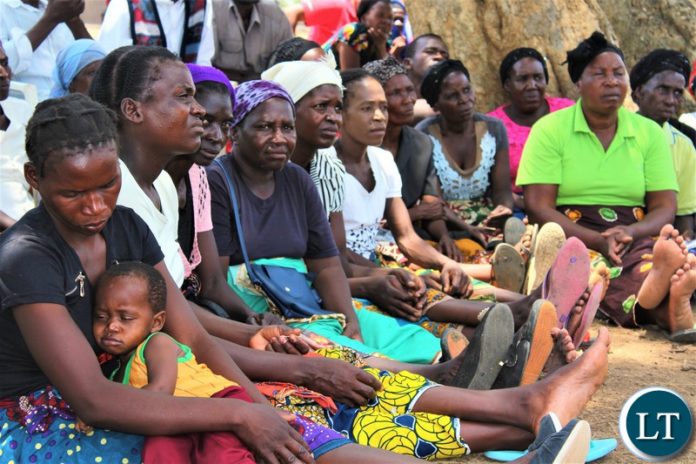
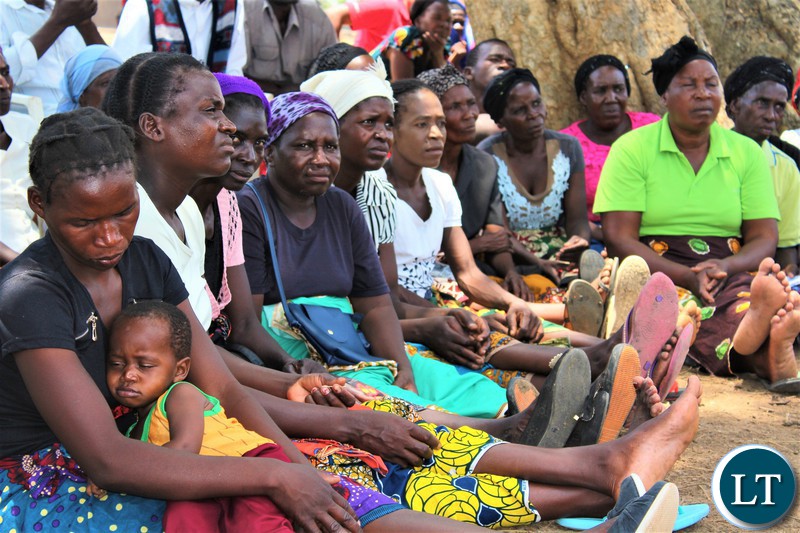
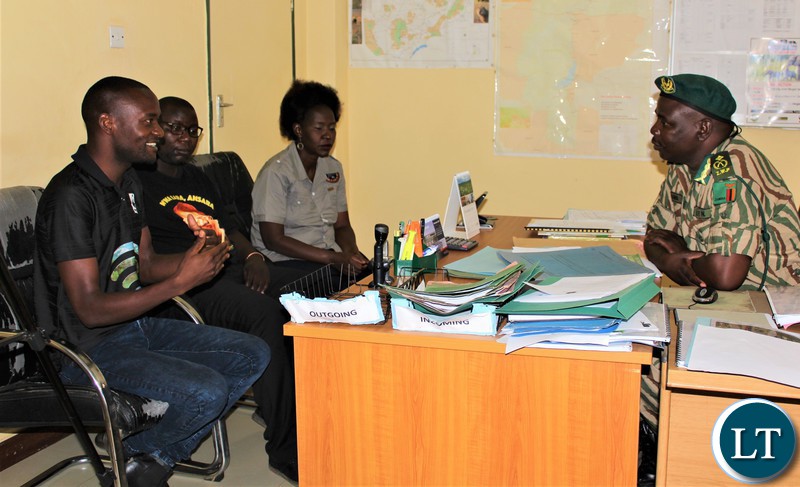
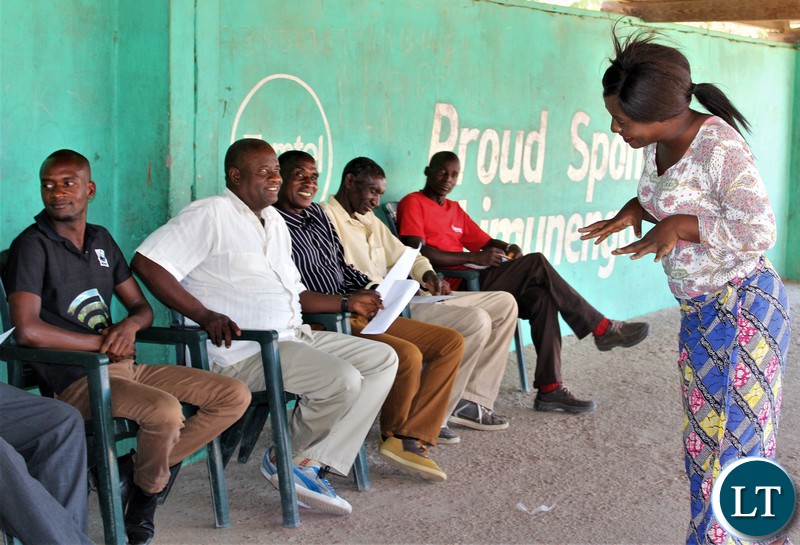
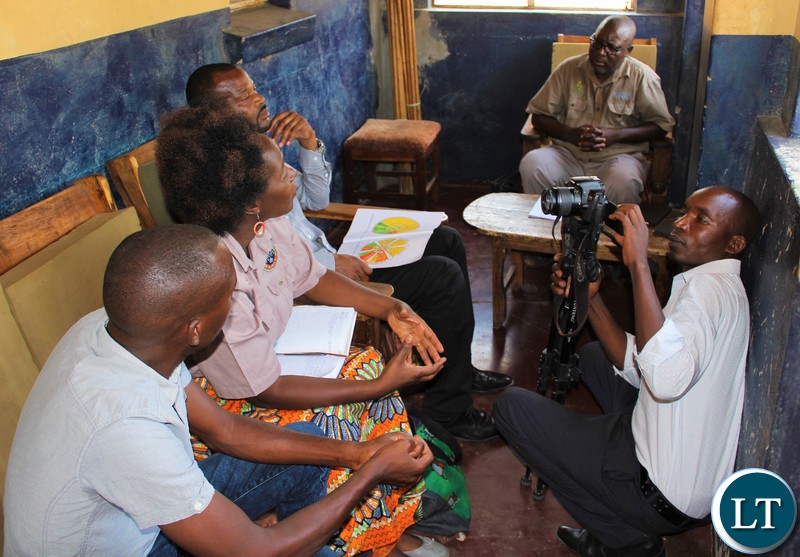
I spent 5 years studying the Lukanga Swamp (for my PhD). That wetland cleans the pollutants emanating from mining ativities on the Copperbelt.
Agricultural activities downriver from it remains a main soure of contaminant. This is evident by the bloom of Kariba Weed found in the southern end of this glorious river.
Elsewhere, such weed can be dried then pressed into briquettes and used as fuel for cooking
Comments are closed.